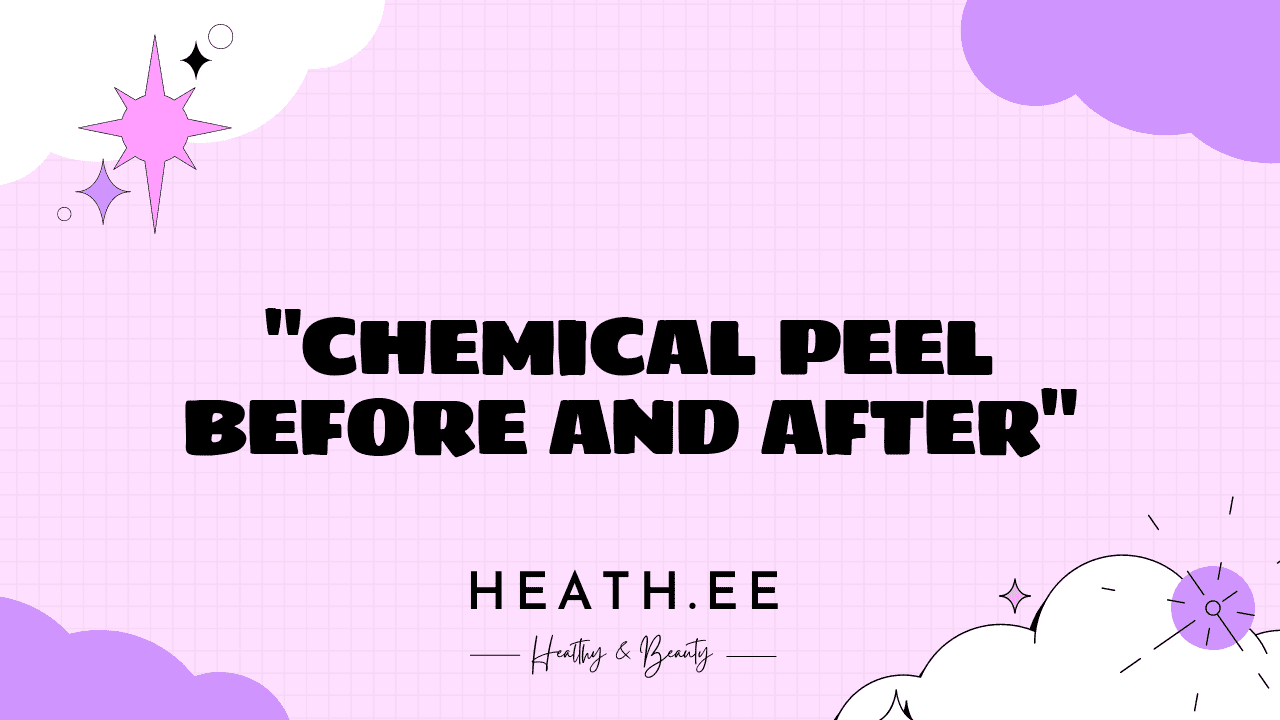Chemical peels are one of the most popular skin care treatments available today. They can help reduce wrinkles, reduce the appearance of acne scars, and even out skin tone. But before you decide to go ahead with a chemical peel, it’s important to understand what they are and what the potential risks and benefits are. This guide will explain everything you need to know about chemical peels before and after, so you can make an informed decision.
What is a Chemical Peel?
A chemical peel is a type of skin care treatment that uses a chemical solution to remove the top layer of skin. This layer of skin is then replaced by new, healthy skin. Chemical peels can be used to treat a variety of skin conditions, including wrinkles, acne scars, age spots, and uneven skin tone.
The most common type of chemical peel is the glycolic acid peel. This type of peel uses a solution made up of glycolic acid, which is a type of alpha hydroxy acid (AHA). Other types of peels include salicylic acid peels and trichloroacetic acid (TCA) peels.

What to Expect Before a Chemical Peel
Before you undergo a chemical peel, your skin care provider will evaluate your skin and discuss your goals. They will also explain the procedure in detail and answer any questions you may have.
Your skin care provider will also give you instructions on how to prepare for the procedure. This may include avoiding certain products and activities, such as sun exposure, tanning beds, and waxing.
What to Expect During a Chemical Peel
During a chemical peel, your skin care provider will apply the chemical solution to your skin. The solution will be left on your skin for a certain amount of time, depending on the type of peel and your skin type.
Once the solution has been removed, your skin care provider will apply a moisturizer and sunscreen to protect your skin.

What to Expect After a Chemical Peel
After a chemical peel, your skin may be red, dry, and flaky. This is normal and should go away within a few days.
Your skin care provider may also recommend that you use certain products, such as moisturizers and sunscreens, to help protect your skin. You should also avoid activities that can irritate your skin, such as sun exposure, tanning beds, and waxing.
Risks and Benefits of Chemical Peels
Like any skin care treatment, chemical peels have both risks and benefits. The most common risks include skin irritation, redness, and dryness. However, these risks are usually mild and can be managed with the proper care.
The benefits of chemical peels include improved skin tone, fewer wrinkles, and reduced acne scarring. In addition, chemical peels can help reduce the appearance of age spots and sun damage.
How to Choose a Skin Care Provider for a Chemical Peel
When choosing a skin care provider for a chemical peel, it’s important to find one who is experienced and knowledgeable about the procedure. You should also ask questions to make sure you feel comfortable with the provider.
It’s also important to ask about the type of peel they use and the potential risks and benefits. You should also ask about the cost of the procedure and any follow-up care that may be necessary.
How to Care for Your Skin After a Chemical Peel
After a chemical peel, it’s important to take good care of your skin. This includes using moisturizers and sunscreens, avoiding activities that can irritate your skin, and avoiding sun exposure.
Your skin care provider may also recommend certain products to help reduce redness and dryness. They may also recommend certain treatments, such as laser treatments, to help improve the results of the peel.
Chemical Peel Before and After: Final Thoughts
Chemical peels are a popular skin care treatment that can help reduce wrinkles, acne scars, and age spots. Before undergoing a chemical peel, it’s important to understand the potential risks and benefits. It’s also important to choose a skin care provider who is experienced and knowledgeable about the procedure.
After a chemical peel, it’s important to take good care of your skin. This includes using moisturizers and sunscreens, avoiding activities that can irritate your skin, and avoiding sun exposure. With the proper care, you can enjoy the results of your chemical peel for many years to come.



